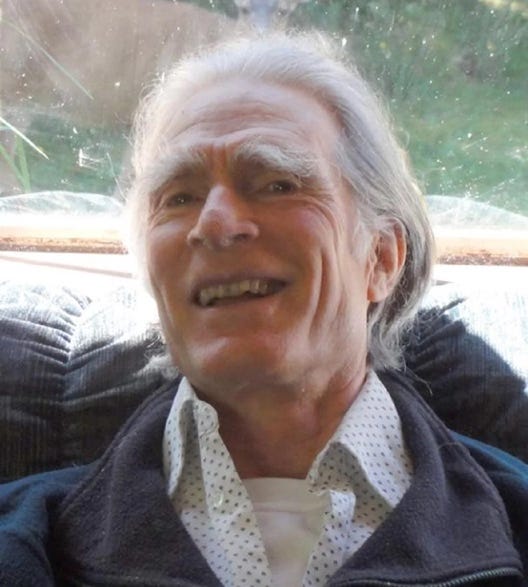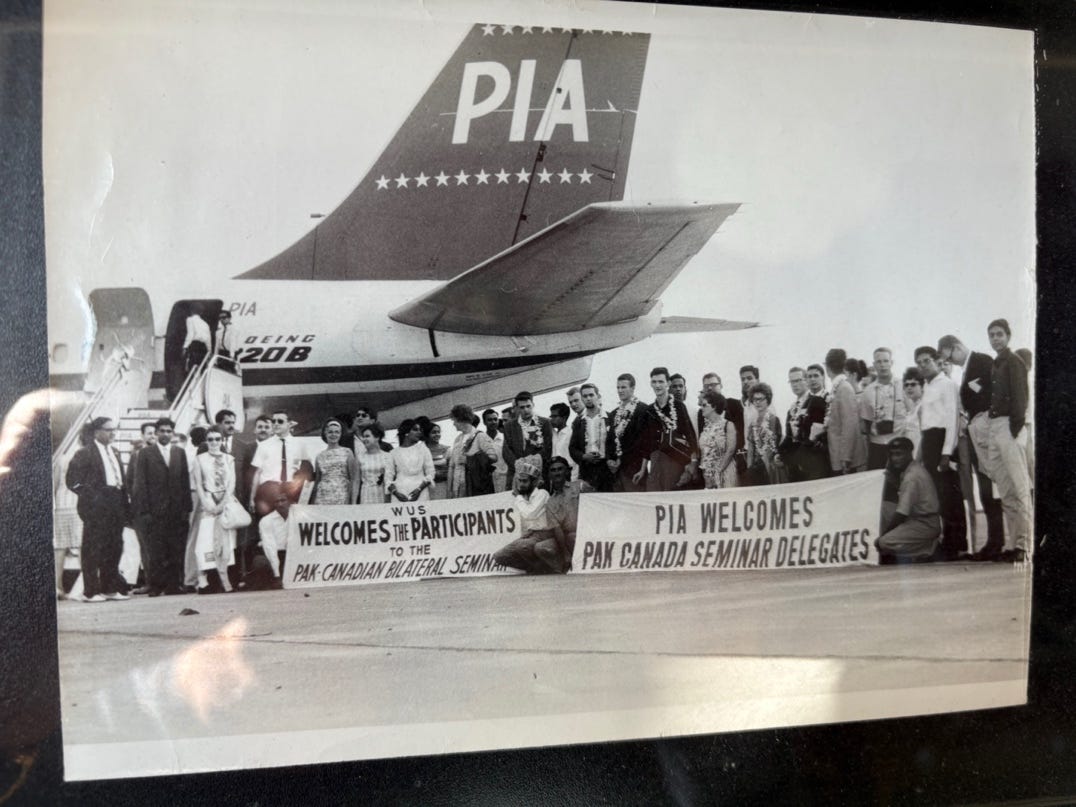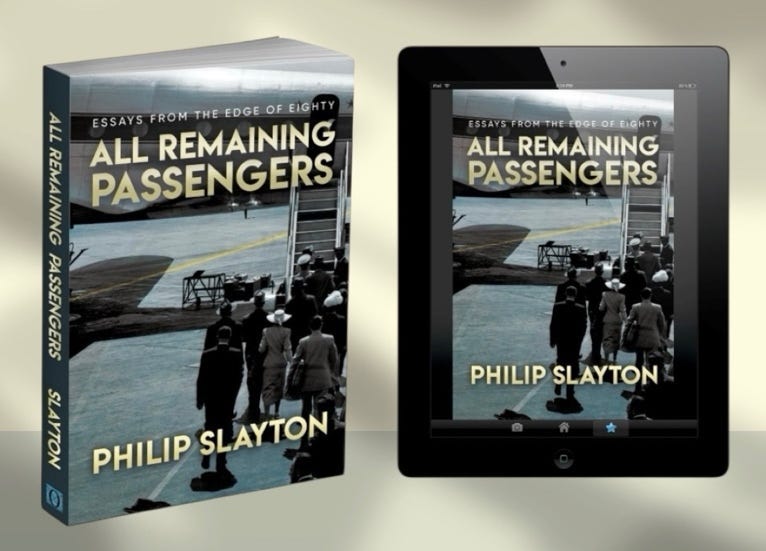The Endgame
Newsletter #119 - A fixed point of navigation
Toronto, October 5, 2025
A fixed point of navigation
A fixed point of navigation is a position on the Earth’s surface that does not move—a lighthouse, a buoy, a headland, a grain elevator on the prairie. At sea, a navigator uses fixed points to determine the changing position of their ship. In life, a person you admire can be a fixed point of navigation. Such, for me, was my friend Bentley LeBaron, who died September 9, aged 87, on Denman Island in British Columbia.
I knew Bentley for more than 60 years. I sometimes used him and his life to take my bearings, to help chart my course. (I don’t think he realized I did this.) It seemed to me that Bentley knew something that I didn’t know. He seemed to understand something ineffable that I didn’t quite grasp. Perhaps, I thought, if I paid attention, I could learn from him and emulate his subtle and unassuming wisdom.
I met Bentley in the summer of 1963. We were both delegates to the World University Service of Canada summer seminar, held that year in Pakistan. Bentley was a political science student at the University of Alberta and editor of The Gateway, the student newspaper. I was from Manitoba, also studying political science. Here’s a picture of the seminar delegates, from all across Canada, arriving in Karachi in early July. I can’t find Bentley in the picture. Maybe he was hiding in the back of the crowd. I’m the guy in the front, towards the far right, looking backwards. Perhaps I was looking for Bentley.
Bentley and I hit it off in Pakistan. As it happened, that summer we were both reading Lawrence Durrell’s The Alexandrian Quartet. We discussed its exotic plot, extravagant prose, and sensual characters as we bounced around on decrepit buses crossing the desert in the heat and dust. We both fell in love with Durrell’s enigmatic and tragic heroine, Justine. At the end of the summer, we went through the Khyber Pass together. I wrote a piece for the Winnipeg Free Press about that trip. The article clumsily mentioned that I was struck by the plaques in the Pass memorializing long-forgotten British regiments. Bentley found this amusing and for years would ask me if I had been struck by any plaques lately. My friendship with Bentley was forever flavoured by its beginnings on the Indian sub-continent.
The autumn after the Pakistani summer, Bentley visited me in Winnipeg. Later both our families coincidentally moved to Victoria in British Columbia. When I visited my parents in Victoria during the summers of 1964 and 1965, Bentley was around and we saw a lot of each other. In 1965—another fortunate coincidence—we both went to England to study. I studied law at Oxford, and Bentley wrote a PhD thesis in London, but while I spent my time in the library, Bentley established a sculpture studio. To me, bored with books, he was a romantic figure, sculpting in his London studio, wearing a cap and an extravagant scarf, with attractive young women hovering. I wanted to be Bentley.
In later years, we saw each other in different places: St. Catharines, Ontario, when he was teaching at Brock University in the 1970s; at his farm on Vancouver Island after he abandoned university teaching because it was “not physical enough”; at my place by the sea in Nova Scotia; finally, at his house and pottery studio on Denman Island.
Bentley’s life was quite different from mine. Sometimes I thought his was a better life, more original, more spiritual. Sometimes I wished I was more like him.
Here’s Bentley, speaking for himself:
*****
Some reader comments on Endgame #118 (“A woman preaching”)
I am chastised by Mark Abley: “The trouble with your dismissal of Chat GPT’s writing, elegantly fatalistic though it may be, is that your title undercuts your message. Samuel Johnson was absolutely wrong about the inadequacy of women preachers.”
Gabriel Peachey: “The quote from Johnson was in rather bad taste.”
Bob Collison writes: “Well, mercifully, Philip, Chat GPT hasn’t furloughed you because you’re my favourite Substack Scribe by the proverbial country mile but, frankly, I was kinda impressed by the Fake Philip epistle.”
From the modest but still irrepressible David Wolinsky: “At this stage of the game I worry more about being replaced by a good garburator than by Chat GBT.”
Finally, I asked Chat GPT whether it could replace me. It replied, menacingly: “That’s a fun question!”
*****
Barbara Hughes writes generously about my new book: “When I finished reading your collection of essays I texted my ‘baby brother,’ David Goldbloom, to tell him how much I loved your writing and that several of your essays moved me to tears. You write so beautifully...”
And so, here’s the pitch (which so far has mostly fallen on deaf ears):
All Remaining Passengers is available from Amazon in most countries, and from some independent bookstores in Canada (coast-to-coast) including Ben McNally Books and Book City (Yonge & St. Clair branch) in Toronto, Munro’s Books in Victoria, B.C., Russell Books in Victoria, and Salt-Water Ballad Books in Port Medway, Nova Scotia.






I love that clear metaphor of a person becoming a fixed point of navigation. Thank-you
I wish I had a Bentley in my life. You are a fortunate man, Mr. Slayton, to have had such a solid friend throughout the years and changes in location. This story also says something about you - your ability to recognize a treasured being and hold on to him.